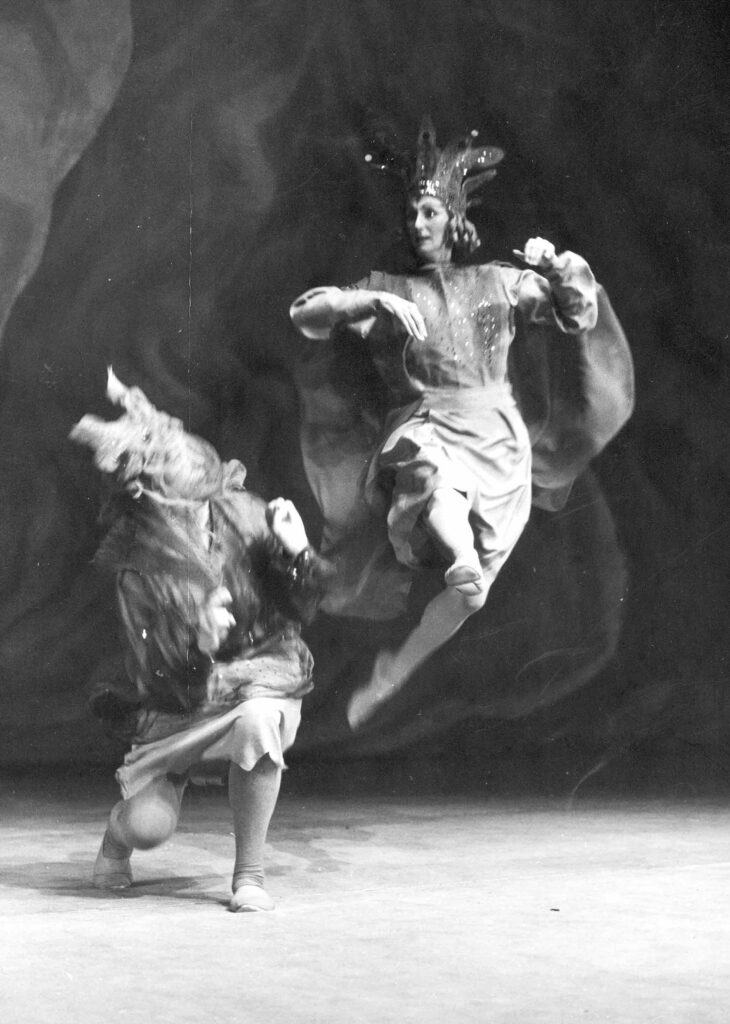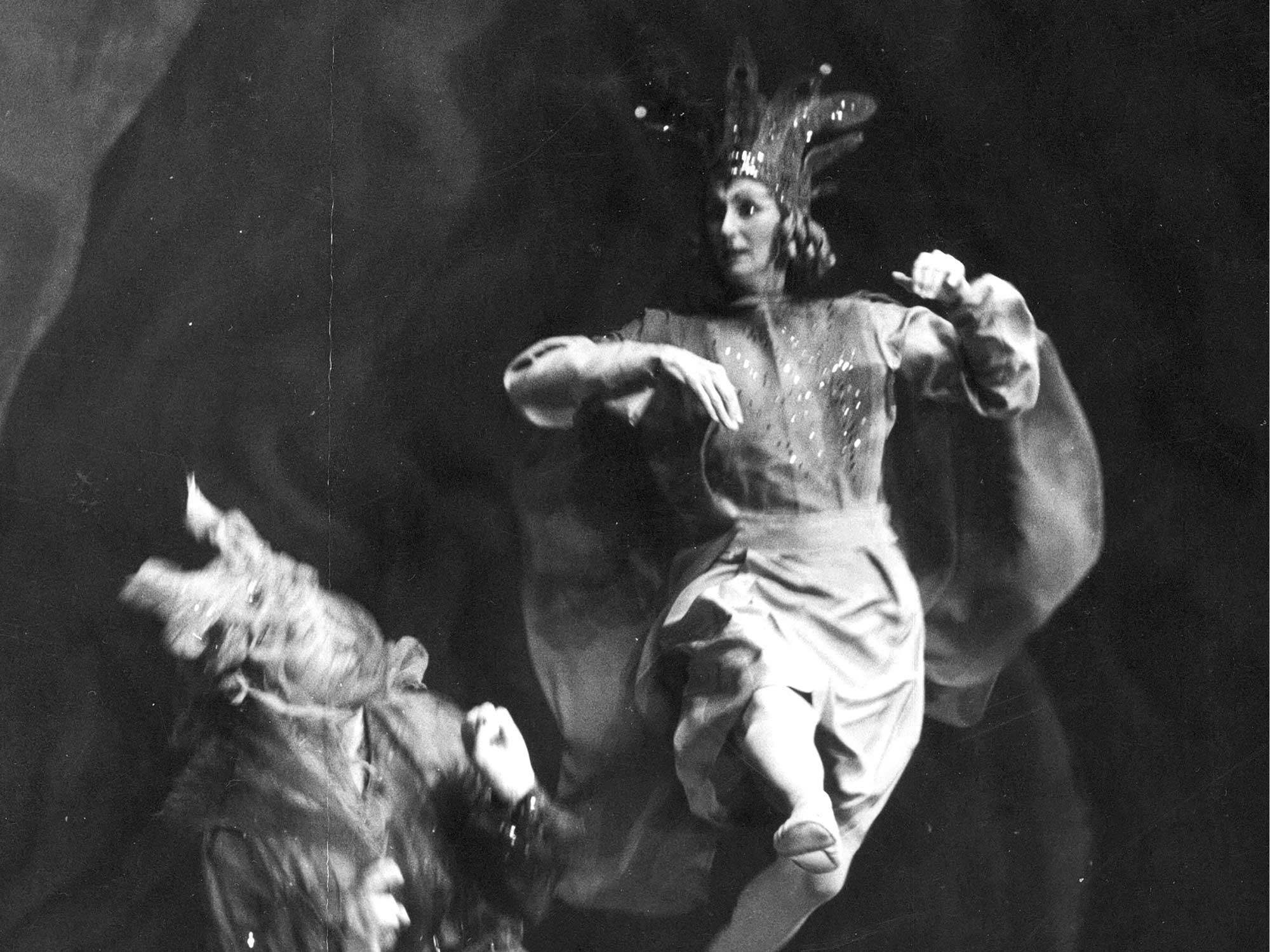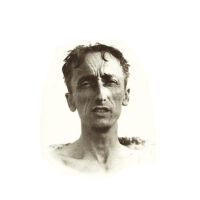There was deep mystery wisdom expressed in what Rudolf Steiner gave at the end of his life: 19 lectures on theatre that offered the possibility for an artistic revelation of his teachings on reincarnation and karma.
The five Greek Olympic disciplines, which Rudolf Steiner named as the basis for a contemporary theater, were intended to unite the actors with the modern Mysteries. This new form of initiation, which Steiner gave at the Christmas Conference in 1923/24, has its roots in the ancient Mysteries, out of which theater as we know it emerged. This modern initiation connects the actor or actress with cosmic truths and helps them relinquish their hold on established ideas, habits, and expectations. From an esoteric point of view, these new mysteries also help the actor’s double to serve the spiritual power of the Word rather than their subjective biographical emotions. This is done by guiding this shadow being first through the body (Greek gymnastics), then into the soul, and finally to the spirit, where it becomes the dynamic movement of the sounds of the Word. It then descends through the soul back into the body, transformed. The body becomes Word. It may sound incomprehensible to those who have not experienced this process, but it is truly a path that only an initiate of Rudolf Steiner’s stature could bring into being.
There is not enough space here to describe the wisdom he incorporated into his final cycle of 19 lectures shortly before his death, but it suffices to say that they are powerful enough to help theatre practitioners all over the world to renew their art, regardless of religious or spiritual beliefs, language or nationality. It is an obviously exoteric book, but it was born out of esoteric wisdom, and now, 100 years later, we may be inspired to blow the dust off and re-examine the lectures to see if they still have relevance today. I know that many people trained in speech formation have made good use of the Drama Course in Waldorf schools and workshops or for directing amateur theatre. However, to my knowledge, it has rarely been used professionally in directing a play. For me, there is as much difference between ordinary theatre and what might result from Rudolf Steiner’s Drama Course as there is between dance and eurythmy.

Why the Course Remained Hidden
For the sake of transparency and historical correctness, it is important to delve into the history of this lecture cycle and find out why it did not succeed in forming the backbone of anthroposophically inspired theatre. Speech formation became the determining factor, while acting relied solely on the talent of the actors. The art of acting was never trained to the same extent as the art of speech. This is mainly due to the fact that there were no teachers who were trained in the way outlined in the course. One reason could be that the emotional soul constitution of an actor is very specific and different from those who want predominantly to study speech. The dramatic arts are more rooted in the Dionysian mysteries, which by their nature draw on experiences of the double. To suppress or banish this relationship through the purifying power of speech alone is to stifle the actors’ creativity, stem the flow of the karma of their profession, and can lead to deep, if not traumatic, frustration. There are indeed many who have been damaged, abandoned, and fallen by the wayside. I believe Rudolf Steiner understood this deeply. Again and again in the lecture cycle, he calls for the actors to be left free to decide for themselves how they interpret the given indications.
From the Cry for Honesty to the Call for Spirit
It might be good, at this point, to give my personal view of the situation we find ourselves in today. I was trained in the core of the English acting tradition, which had Stanislavski’s and Rudolf Laban’s methods at its foundation, among others. So I understand deeply what this stream means for theatre culture. It spread more or less all over the world and reached its peak in the art of film. The need to be seen as normal, real, vulnerable and above all personal, and to break away from anything that might appear as old melodramatic pathos was simply the cry for truthfulness that enables an audience to recognise and affirm their normal daily selves. Everything else seemed like a lie. They wanted to shake the audience out of their complacency and confuse their expectations of what theatre is or isn’t. In doing so, they did something that modern painting also did: the images detached themselves from what the eye sees and expects. Rudolf Steiner explored this in his first mystery drama, Portal of Initiation, from the point of view of the character Estella.
One of the tasks of theatre is not only to hold up a mirror but to open a window, to accept the unexpected that comes from the spiritual worlds and to reveal the spiritual nature of the human being. The Drama Course could have helped to ride the wave away from naturalism and develop a style born from the inspiration of spiritual science. This did not happen, although it can be argued that one branch of the course, speech formation, at least cultivated a stylised use of the spoken word. Had the art of acting been pushed forward in the last 100 years to the same extent as speech, I am convinced that a form of theatre would have developed that was in a process of constant metamorphosis, living in the spirit of the times. Guided by the Archangel Michael, an echo could have resounded worldwide, revealing itself through the different folk souls in endless different manifestations, always inspired by the cosmic power of the spoken word.

Breaking the Seals
The Drama Course became a book with seven seals, which most of the first generation of anthroposophical speech teachers advised against reading. This is understandable because it required a radical break from the traditional acting style that centred around a more recitative or declamatory style and demanded a foundation based on the body and not on speech, even though the renewal impulses were to be born from speech. The body was then and still is seen as something dangerous, untrustworthy, and liable to lead the actor astray into undesirable emotions which would tarnish the purity of speech. Rudolf Steiner, on the other hand, saw the body as the foundation for the word, which in turn would enable the transformation of the actor’s body, initially through the five Greek Olympic disciplines.
The course is full of the most amazing and exquisite examples for a new style of theatre, guiding us through very practical examples in directing, costumes, lighting, meditation, and how to raise the spoken word out of naturalism into a styled speech. I offer one example from the many steps that Rudolf Steiner gave actors and actresses to prepare for their roles. I am sure you can appreciate how difficult it is to describe a process that can only be understood if it is truly felt and experienced!
At the end of the first lecture, Rudolf Steiner introduces the five disciplines of the Olympic pentathlon: running, jumping, wrestling, discus, and javelin throwing. As an example, I will take wrestling, the most social, dynamic and subjective of the five, which develops the power of the heart in all its connotations and represents the preparation for dialogue, all physical movements on the stage, and the six gestures of speech. The latter should first be practised by listening, “[…] proceeding in this way we shall acquire a right feeling for the forming of speech, whereas by the reverse method, conclusions of an arbitrary nature would be constantly suggesting themselves – supposing, I mean, we were to start with the word…”
A typical rehearsal would look like this:
1. The actors practice Greek and Roman wrestling for three-quarters of an hour. This is full-body wrestling on mats, not just touching and moving the hands. This greatly heightens their receptivity to the gestures of their opponent and their surroundings. Wrestling has a dual function: it is the preparation for all stage gestures, and most importantly, it is a preparation for the gestures in speech.
2. While in the immediate afterglow of wrestling, the actors practice in two different phases: First, how they physically react to each situation on stage, and second, how the intention and emotion of the words they are asked to perform are revealed in gestures, without speaking. Their text is spoken by a narrator. The entire play is rehearsed using this external voice, leaving the actors free to practice their gestures without being hindered by remembering lines or worrying about how to deliver them. There is deep spiritual wisdom in the separation of speech and gesture at this stage of rehearsal that can be linked to the development of spiritual imagination and inspiration skills. Gesture is inspired by and creates true imaginations for the audience; inspiration inspires the musicality of speech and allows the audience to hear the spoken word as inspired sound freed from intellectual content.
3. Wrestling is followed by discus and javelin throwing, which, as above, also require clear practice.
4. In the final phase, the actors themselves speak but initially without physical gestures, and, instead, allow the ethereal memory of their physical gestures to flow into their speech. This phase is similar to practising the art of speech formation, in which the gestures begin to reveal themselves in the four sound groups: blowing, impacting, flowing, and vibrating, but without physical gesture.
Ultimately, we see in the performance that the actors and actresses are not fully immersed in either the speech or the stage gesture. This separation creates a space in which the audience has the opportunity to create their own experience of the performance. Their eye allows them to understand the content through body and gesture, and their ear allows them to hear how the content has been transformed through gesture, enabling them to experience the truth and beauty of the sounds in the speech. Between the two, the audience is released from the earthbound lower senses and can experience the magic that the playwright experienced. What resounds from beyond helps everyone in the audience to recognise who they truly are: a spiritual being!
May the Drama Course be a guide for a new generation of actors and actresses who wish to see their art as a revelation of the cosmic Word, enabling their audience to approach and actually cross the threshold of the invisible world and, from there, experience the guidance they long for so strongly.






How wonderful, the series on “Being Human”—The theatre of the word—-thank you, for all the esoteric knowledge and Rudolf Steiner’s heavenly work. I have been an anthroposophist for 50 years, and just gave a lecture on Kaspar Houser to our branch, “The Michaelic Anthroposophical group of Connecticut”.
Thank you again for all you bring.
Lucinda Moran